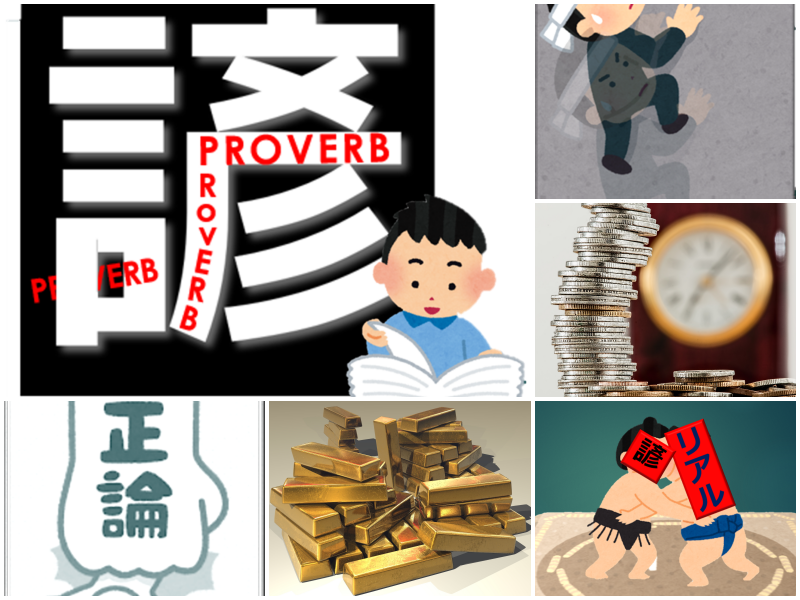以下は大雑把な英語版です。
知ってる内容を英語ルートで理解。洋画で字幕を読んで英語を聞くように。
日本語の内容はこちらから
↓ ↓ ↓
https://worldlife.jp/archives/11656
Do you think anything is more boring, clichéd, or uninteresting than proverbs? I used to feel that way until recently when I discovered an excellent way to appreciate proverbs more fully.
It all started when I began to question if we can always live up to what a proverb suggests. For example, “time is money.” It doesn’t take long to realize that we often waste a lot of time in our lives, unless we’re exceptionally efficient and capable individuals, which is not something most people aspire to be.
That’s when I realized there are two opposing forces at play: on one side, the simple truth that the proverb presents, a value or judgment that we should follow or live up to, and on the other side, the reality of human beings who are not always rule-abiding. We can be lazy, wasteful, careless, disloyal, and untrustworthy at times. It’s like a sumo match between the two forces: the proverb urging us to embody a certain value, while our human nature resists.
This led me to an idea to better appreciate proverbs. First, when you come across one, try to accept its truth. Then, counterargue with it. For example, you can say, “You’re right that time is money, but we can’t always behave or work in a super efficient or productive way. That’s just who we are.”
What do you think of this? I believe that by approaching proverbs in this manner, they become more interesting, going beyond their banality and cliché. Proverbs gain depth when considered in the social context in which human beings live. When seen in isolation, they may not be as intriguing.
You might respond, “That sounds nice, but is it worth the effort? It could be troublesome.”
If you have such a reaction, there’s an ideal proverb for you: “no pain, no gain.” Now that you’re familiar with my sumo argument method, you may argue like this: “You may be right, but I often find myself tempted to gain a lot without putting in much effort, and that’s not necessarily a bad thing. We shouldn’t be blamed for trying to achieve more with as little pain as possible. After all, productivity and efficiency are what we all strive for.”
Now, you’re becoming quite skilled at this new perspective!
私立学校に英語教師として勤務中、40代半ばに差し掛かったころ、荒れたクラスを立て直す策として、生徒に公言して英検1級に挑戦することを思い立つ。同様の挑戦を繰り返し、退職までに英検一級(検定連合会長賞)、TOEIC満点、国連英検SA級、フランス語一級、スペイン語一級(文科大臣賞)、ドイツ語一級、放送大学大学院修士号などの成果を得る。
アメリカで生徒への対応法を学ぶ為に研修(地銀の助成金)。最新の心理学に触れた。4都県での全発表、勤務校での教員への研修を英語で行う。現在も特別選抜クラスの授業を全て英語で行っている。「どうやって単語を覚えればいいですか?」という良くある質問に答える為、印欧祖語からの派生に基づく「生徒には見せたくない語源英単語集」を執筆中。完成間近。常日頃洋書の読破で様々な思考にふれているが、そうして得た発想の一つを生かして書いた論文がコロナ対策論文として最近入賞。賞品の牛肉に舌鼓をうっている。元英検面接委員


